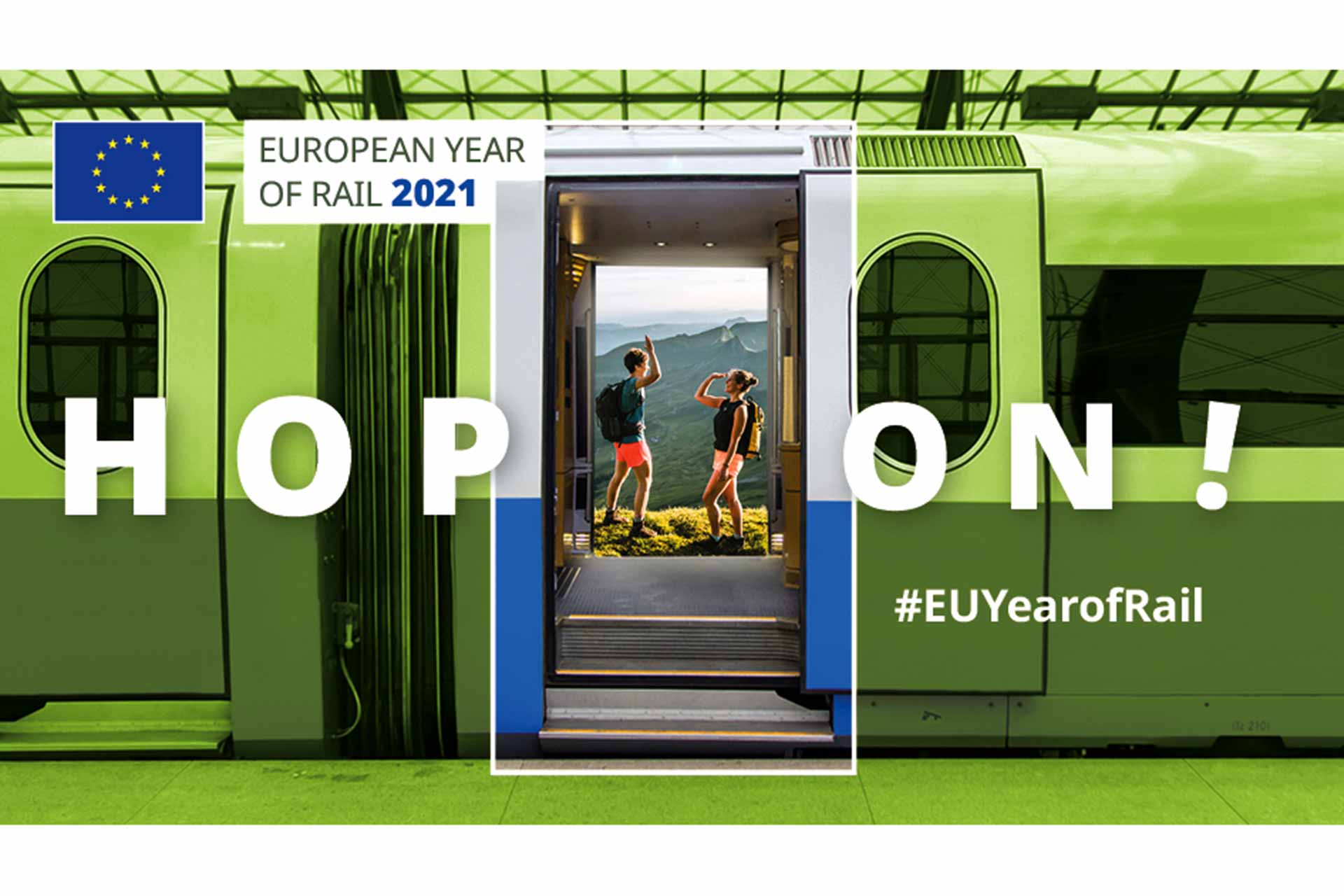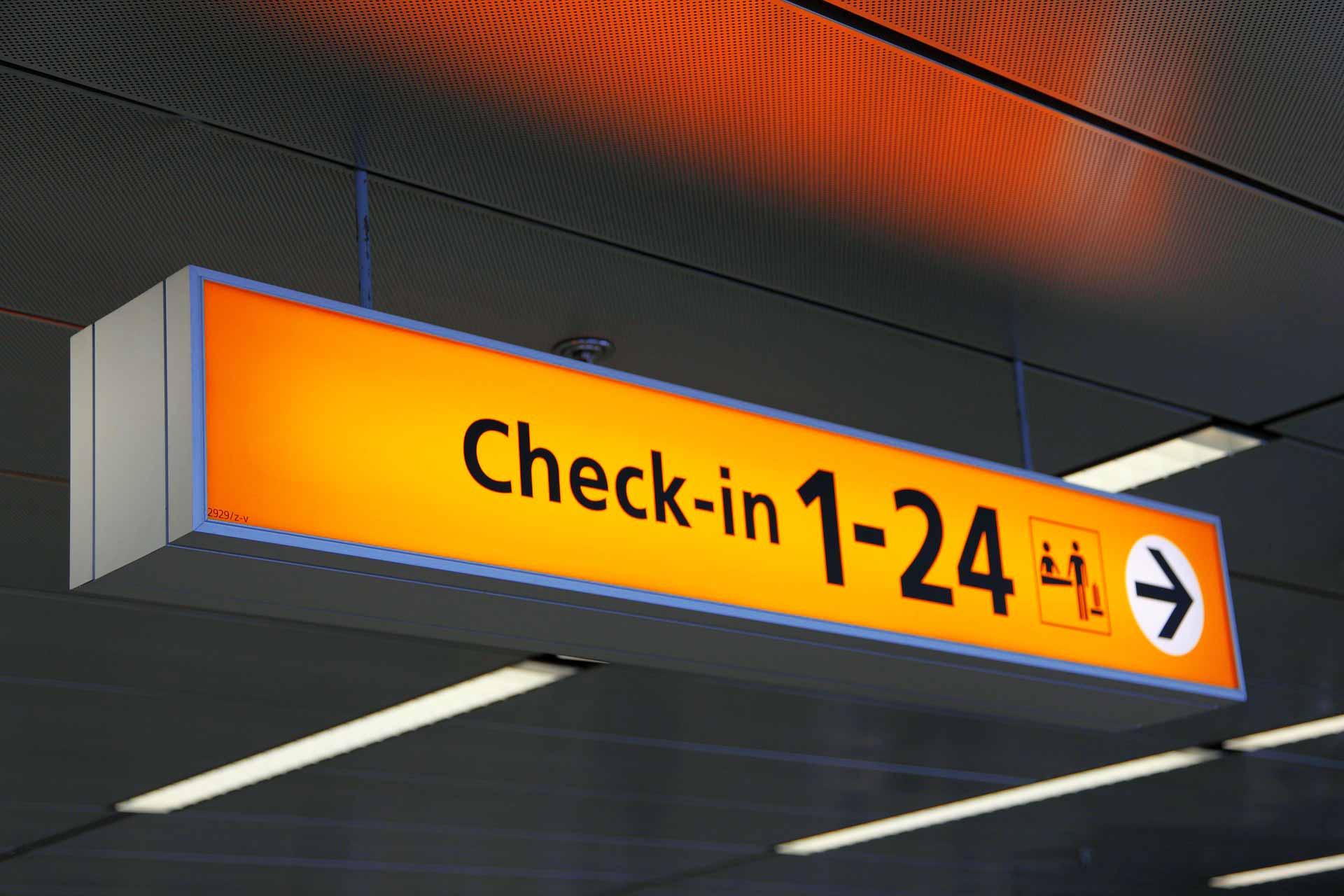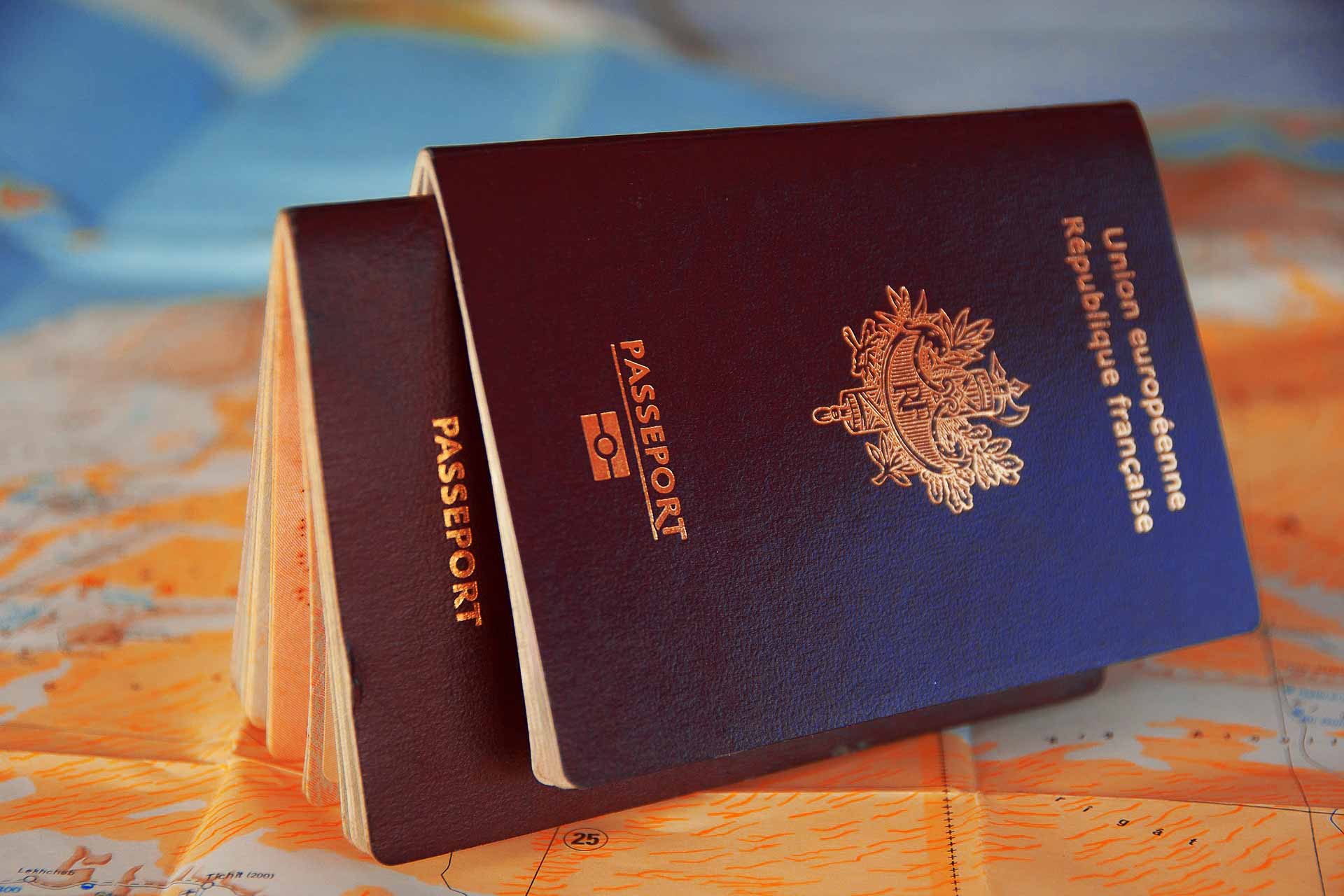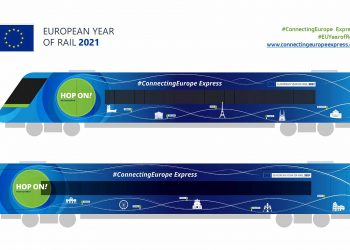Friday, 1 January 2021, marks the beginning of the European Year of Rail to contribute to the European Green Deal for a climate-neutral Europe by 2050. The European Commission initiative will highlight the benefits of rail as a sustainable, smart and safe means of transport. A variety of activities will put rail in the spotlight throughout 2021 across the continent. The European Year of Rail encourages the use of rail by both citizens and businesses and to contribute to the EU Green Deal goal of becoming climate-neutral by 2050.
Our future mobility needs to be sustainable, safe, comfortable and affordable.
Adina Vălean, European Commissioner for Transport
Adina Vălean added: “Rail offers all of that and much more! The European Year of Rail gives us the opportunity to re-discover this mode of transport. Through a variety of actions, we will use this occasion to help rail realise its full potential. I invite all of you to be part of the European Year of Rail.”
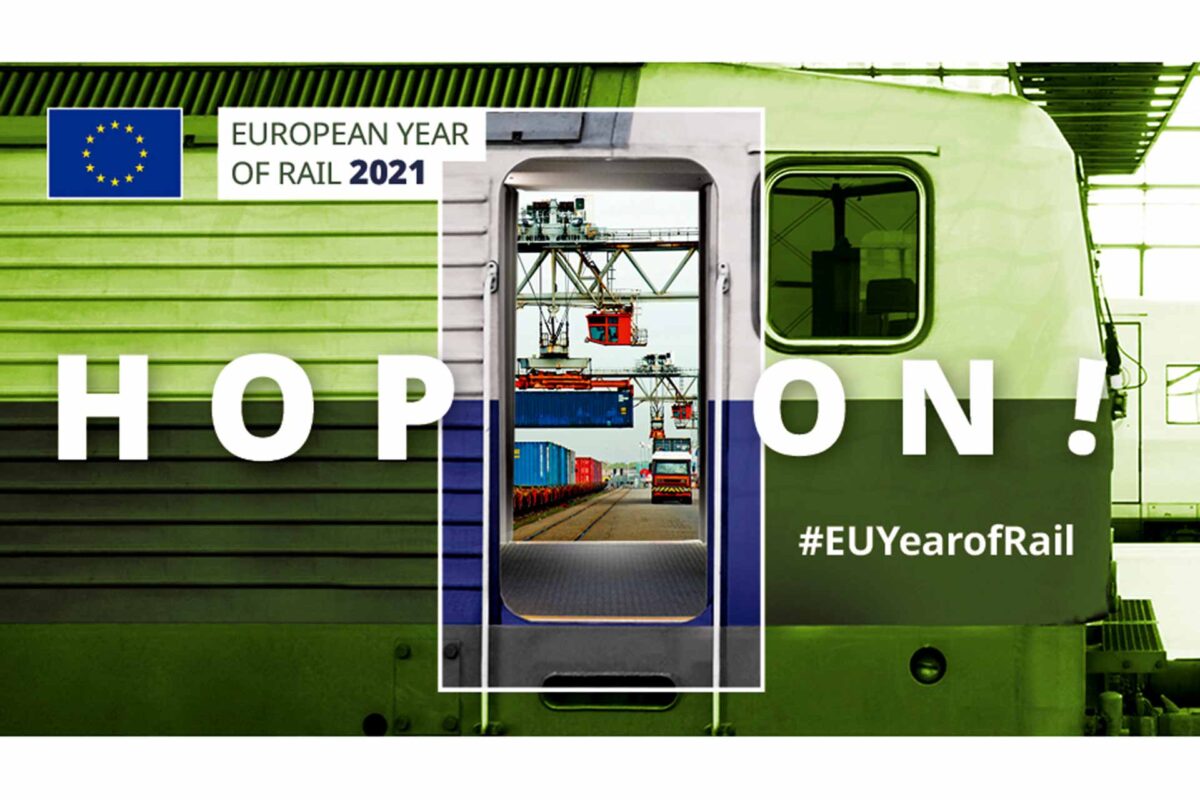
The future is rail
In the EU, rail is responsible for less than 0.5% of transport-related greenhouse gas emissions. This makes it one of the most sustainable forms of passenger and freight transport. Among other benefits, rail is also exceptionally safe. It connects people and businesses across the EU via the Trans-European Transport network (TEN-T).
Despite these advantages, only about 7% of passengers and 11% of goods travel by rail. The European Year of Rail will create momentum to help increase rail’s share of passenger and freight transport. This will cut the greenhouse gas emissions and pollution coming from EU transport. Future European mobility will have a huge contribution to the EU’s efforts under the European Green Deal.
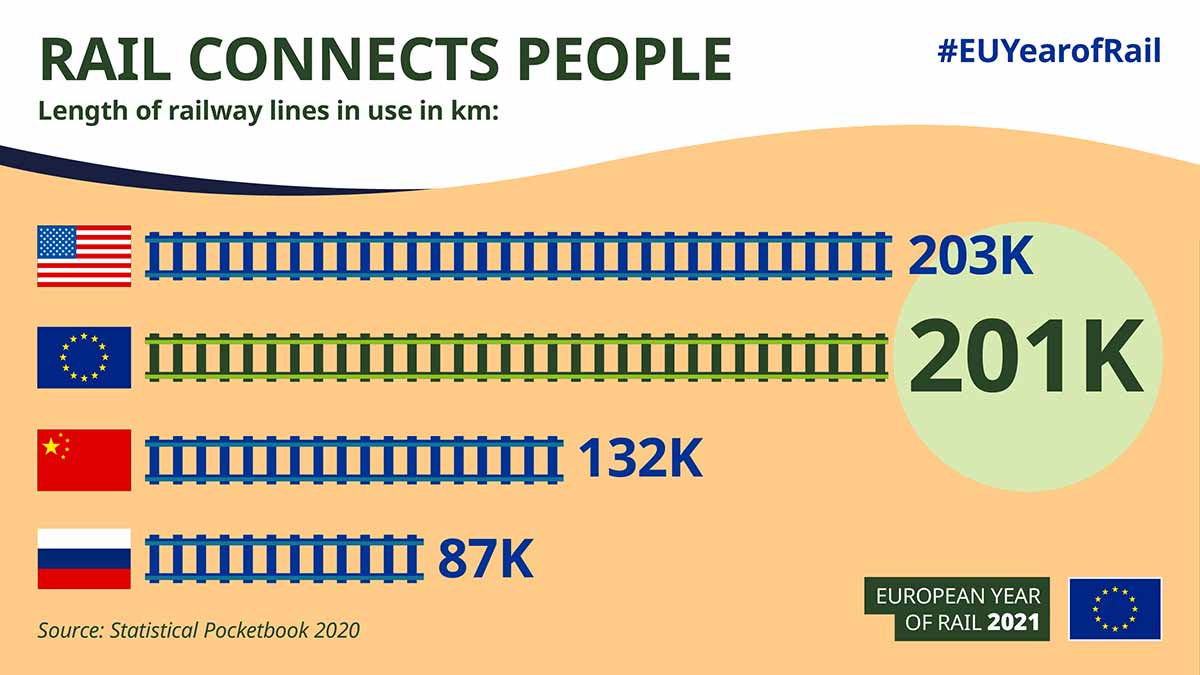
As the first year of full implementation for the 4th railway package, 2021 will also represent an important leap towards the Single European Railway Area. A more efficient European rail network with seamless mobility across borders.
All eyes on rail in 2021
On 1 January, the European Commission will launch a website providing further information on the initiative, as well as an overview of planned activities. Various events, projects and activities across the EU will highlight the many dimensions of rail – from Europe’s world-leading, innovative rail industry, to rail’s role in European culture and heritage, its importance for connecting regions, people and businesses, its part in sustainable tourism, as well as its involvement in the EU’s relations with neighbouring countries, for example.
Rail is Safe – #EUYearofRail European Year of Rail
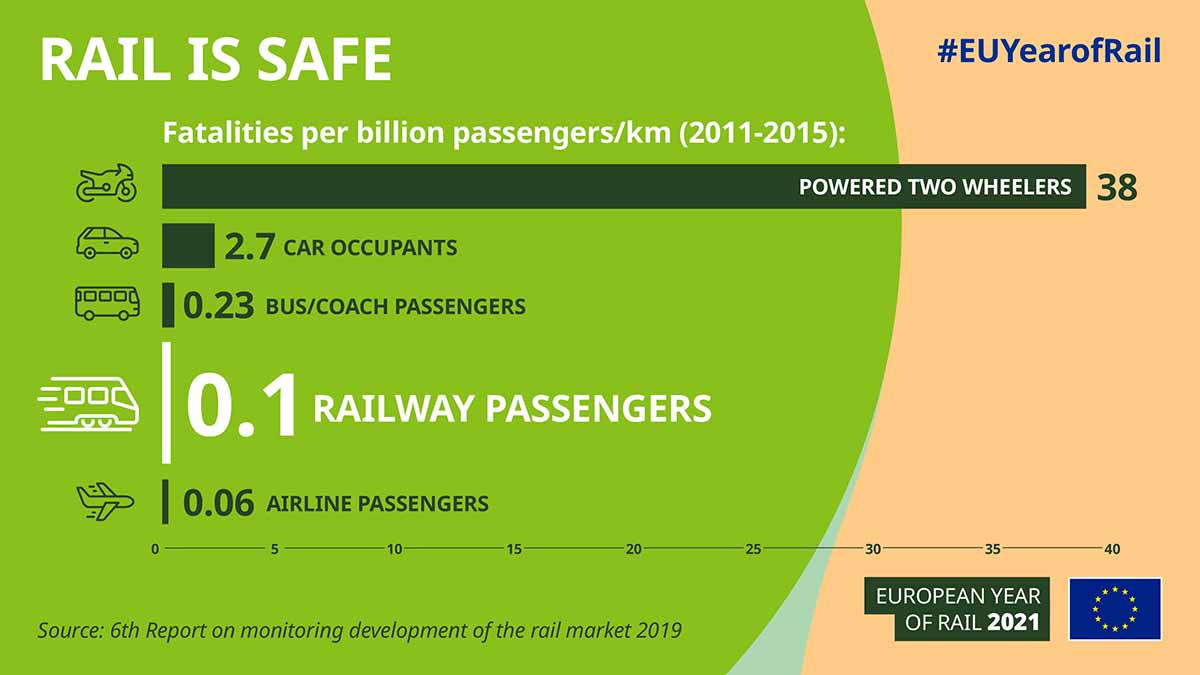
The Commission’s legislative agenda will also reflect the European Year of Rail, with proposals on a new rail industrial partnership, better links for rail with other modes of transport, and making freight transport more sustainable overall, as outlined in the Commission’s recently adopted Sustainable and Smart Mobility Strategy.
European Year of Rail
The initiative, proposed by the European Commission in March and adopted by the European Parliament and the Council in December 2020, is part of the EU’s efforts under the European Green Deal, the EU’s plan to make its economy sustainable by achieving climate neutrality by 2050.
One of the key elements of the plan is to roll out cleaner and healthier means of transport, as the transport sector is currently responsible for about 25% of the Union’s greenhouse gas emissions. The European Green Deal seeks a 90% reduction in transport emissions by 2050.
Which is your favourite train trip in the EU?
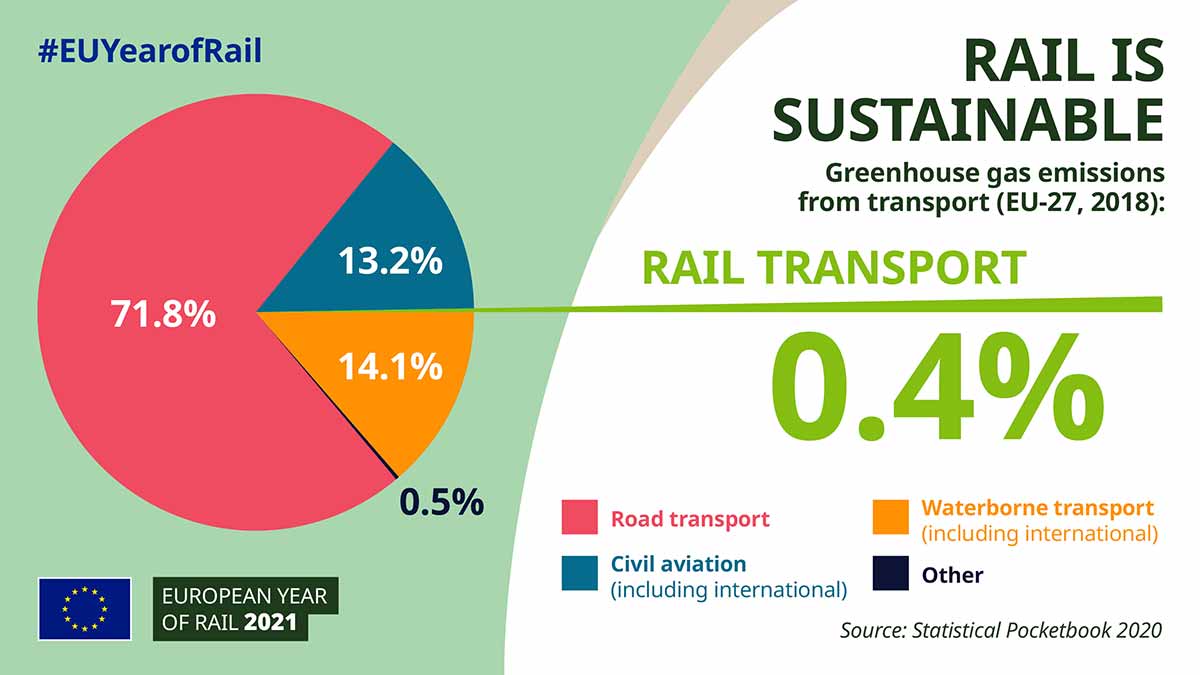
The Commission adopted its Sustainable and Smart Mobility Strategy in December 2020. EU wants transport to continue play its part during the transition towards a clean, digital and innovative EU economy. It outlines the path towards more sustainable, smart and resilient mobility. The Mobility Strategy also includes milestones, such as doubling rail freight and tripling high-speed rail activity by 2050. The Commission will present an action plan to boost passenger rail transport next year. The strategy foresees measures to improve capacity and to simplify ticketing across different transport modes to further increase the attractiveness of rail.

